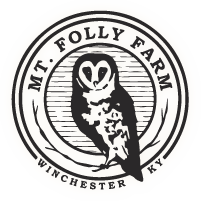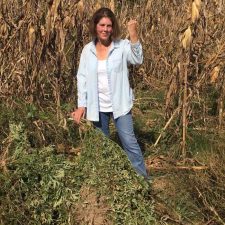Agricultural innovator and entrepreneur Laura Freeman is a 7th generation Kentucky landowner, farmer, and regenerative agriculturalist.
“For the family, it’s not a direct line, since several in the chain of descent didn’t have children, but we’ve been on this land since the early 1800’s,” Laura says. “What strikes me most is how we’ve reinvented ourselves and the farm to match the times, over 200 years.”
Before Laura took over in 1982, the farm had been a pioneer subsistence farm, a tobacco farm, a dairy, a sheep ranch, and a conventional cow/calf operation.
“By chance in the summer of 1983, I saw an enormous cattle feedlot and started raising cattle without antibiotics or growth hormones, built a company on that,” Laura says. “Then, after a bad horseback riding accident I sold that company, started raising hemp, found it helped me immensely, and started another company to sell hemp.”
During the gap between the Laura’s Lean Beef Company and Laura’s Mercantile, a Donella Meadows Fellowship opened Laura’s eyes to the reality of climate change. But essential facts were left out of the presentations, something that Laura calls out now.
“At Meadows, cows were vilified for belching methane. Even though I was a cradle environmentalist, I had devil cows,” she says. Taking this to heart, Laura sold much of her herd.
Then, Dr. Margaret Mellon, the founding director of the Union of Concerned Scientists’ Food and Environment Program, visited the farm one late fall, after harvest. Talking climate change and soil carbon, Dr. Mellon and Laura walked down the farm road, past a group of cows gleaning an organic corn field before the cover crop of Austrian winter peas.
“I don’t see how you do it without them,” she said as she pointed to the cows, recounts Laura.
For Laura, it was a “light bulb moment.”
“Mardi’s comment set me on the path to what I expect will be the final chapter in my life’s work,” Laura says. “Regenerative agriculture needed livestock.”
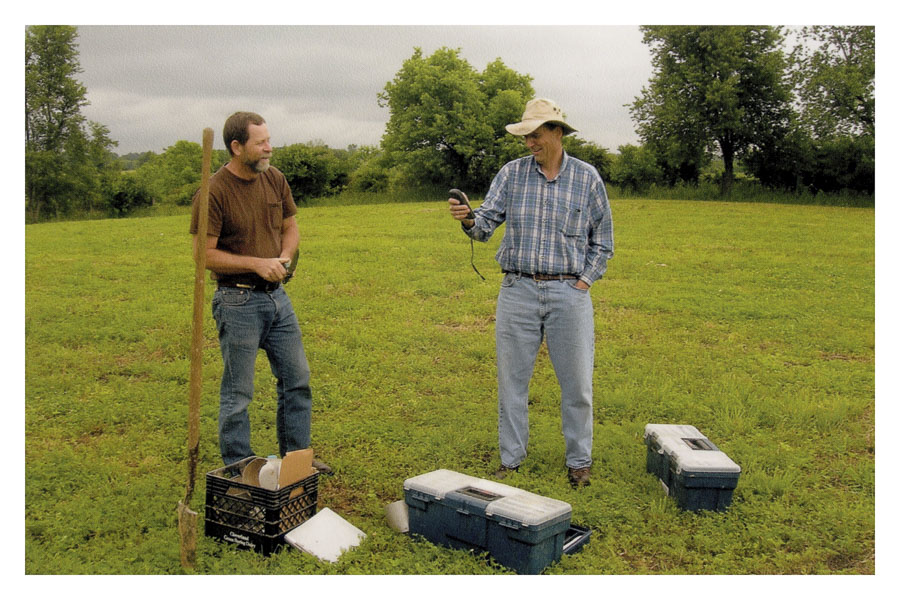
John Graham and fellow soil scientist assess soils for Laura in 2011 at Mt. Folly Farm
Already Natural Resources Conservation Services Agent John Graham had shown Laura the soil benefits of cover crops, taking her to hear Ray Archuleta speak and bringing an agent to do a water penetration test on a “worn out” old tobacco field. (The field is now in alfalfa, and is transitioning to certified organic.) She’d been working on conservation tillage with her organic row crops, two main components of regenerative agriculture. Now she could keep her cattle and confront head-on the farm’s tillage methods while remaining organic.
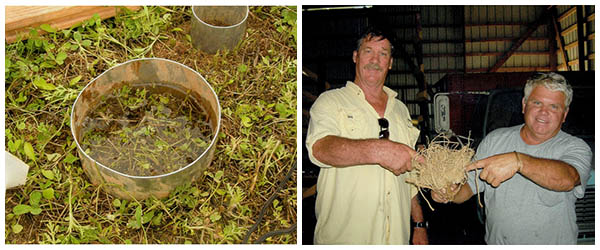
Mt. Folly Farm
Yet, then in her 50’s and knowing that with a farm-year time scale, this was her “last hurrah,” she decided to do more.
Laura explains the time-frame this way: To see if a practice works takes time, because on a farm everything takes a year. If you didn’t get your rye cover on because it rained all harvest, you can try something else, and find out if it works…next year. Now, in 2020, she hopes she has 20 years left.
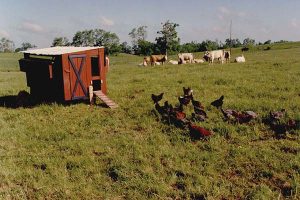
Mt. Folly Farm has always been diversified
Because of her insights into the global industrial food system, learned during her years running Laura’s Lean Beef, she decided to try to make a local “circular economy,” a system reinvention that corrected for attaching improved farming to the industrial distribution and consumption model.
“Farming better, then attaching the improved ecology to an environmentally crazy hub and spoke distribution system, running trucks up and down the highway, moving everything closer to industrial processing facilities, shipping your organic products from Argentina, China, Australia, or Brazil, and doing some repackaging in the United States to obfuscate country of origin. These are all tricks of the trade, but they won’t work if your goals are environmental ones,” she says.
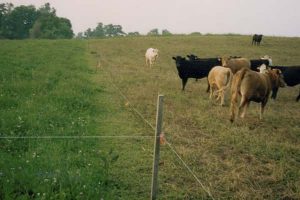
Mt. Folly Farm has had a good Rotational Grazing Program for Decades
“So I dreamt up a local economy model, complete with a farm-to-bottle distillery, farm to table restaurant, regional brick and mortar distribution of hemp products, mail order for everything else. Most critically, I found some sharp young people to learn to run it, and I’m transferring ownership of the companies to them as we make it work,” she says.
Laura concludes, “It’s not been a bed of roses, particularly with coronavirus, but we are getting it done.”
